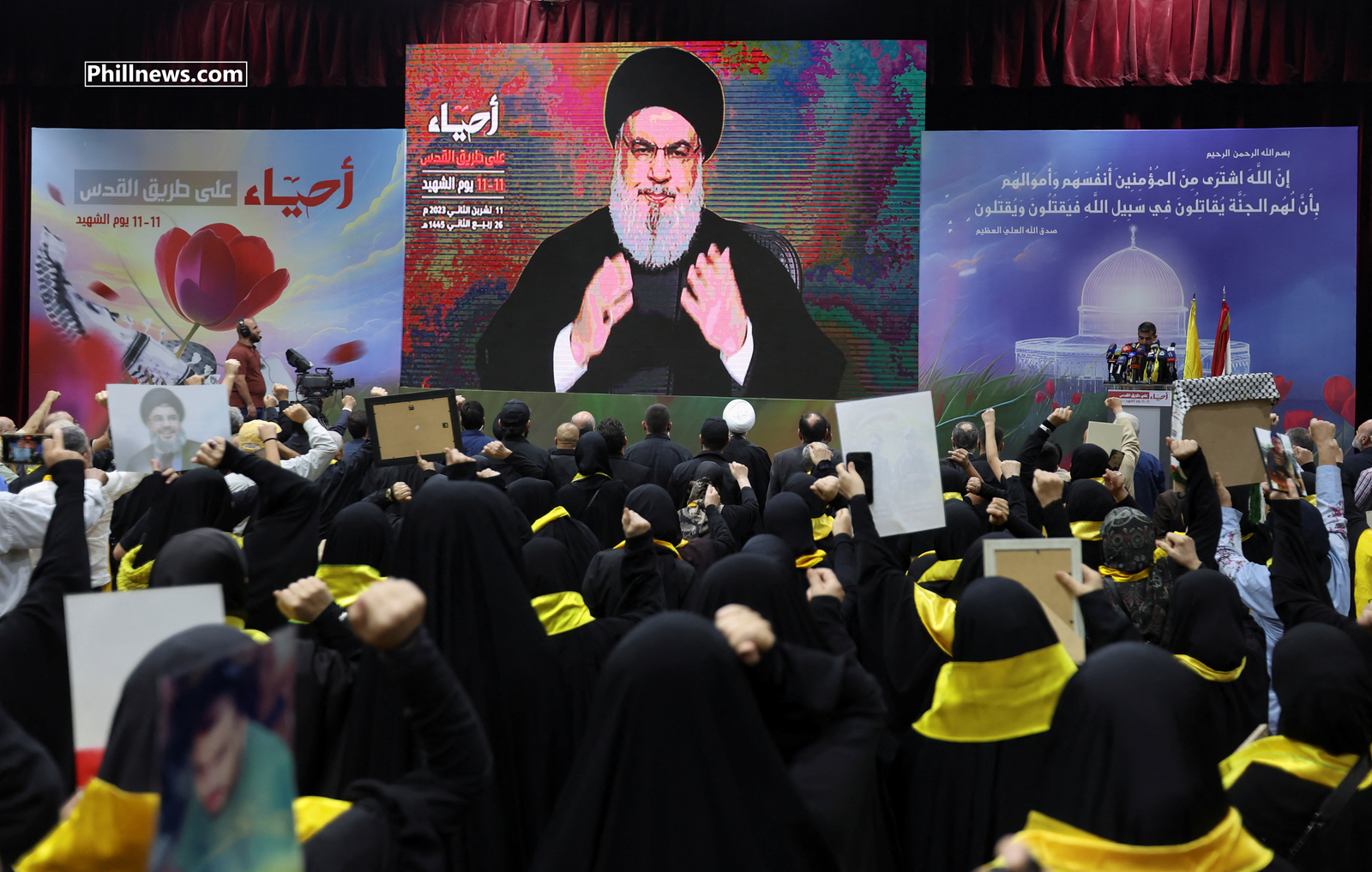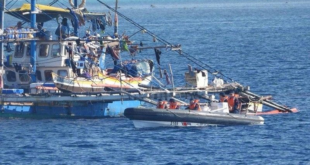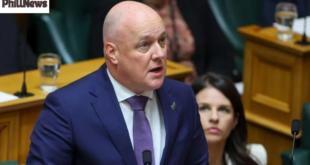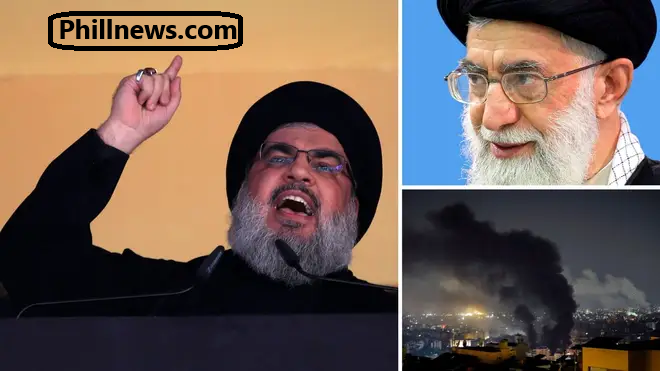
Israel’s killing of Hezbollah’s long-time leader, Hassan Nasrallah, marks a significant escalation in its conflict with the Lebanese terrorist group. It has potentially taken the area one step closer to a far larger and more devastating confrontation involving both Iran and the United States.
So, where will it go from here?
That is mostly dependent on three key questions.
What will Hezbollah do?
Hezbollah’s actions depend heavily on the evolving regional dynamics, especially those involving Lebanon, Israel, Syria, and Iran. As a militant group and political entity, its decisions are influenced by several factors:
Israeli-Palestinian Conflict: Hezbollah has frequently described itself as part of a larger battle against Israel, and its actions are inextricably linked to the situation in Gaza and the West Bank. If the confrontation between Israel and Palestinian factions worsens, Hezbollah may step up its activity, including launching rocket assaults or engaging in border skirmishes, especially if there is a chance to pressure Israel or display sympathy.
Iran’s Influence: Hezbollah is closely affiliated with Iran, which provides financial, military, and logistical support. If Iran is under heightened pressure, such as via sanctions or military action, Hezbollah may behave according to Iranian goals, thereby worsening tensions with Israel or other regional actors.
Lebanon’s Internal Situation: Hezbollah is also part of Lebanon’s political landscape and must consider the local ramifications of any serious escalation. Lebanon is facing significant economic hardships and political turmoil, which may persuade Hezbollah to avoid a big confrontation that would exacerbate Lebanon’s condition. However, if internal forces threaten Hezbollah’s power, the organization may turn to regional measures to galvanize domestic support.
Syria: Hezbollah’s presence in Syria is crucial since the organization has fought alongside Syrian government forces. Hezbollah’s priority might evolve due to developments in Syria, including fighting with residual rebel groups or alliance changes.
Global Diplomacy: Hezbollah’s conduct might also be impacted by diplomatic events involving the United States, Israel, Iran, and other regional countries. A diplomatic accord that limits Iran’s power may make Hezbollah wary, but conflicts with the West could encourage it.
What will Iran do?
Iran’s actions will depend on a complex web of internal, regional, and international factors, especially given its strategic goals and the evolving geopolitical landscape. Here are several key areas that will shape what Iran may do:
1. Nuclear Program
Iran may continue to talk with foreign countries about its nuclear program, perhaps seeking sanctions relief. However, if negotiation with the US and Europe remains stagnant, or if no progress is achieved on the Joint Comprehensive Plan of Action (JCPOA), Iran may accelerate uranium enrichment, bringing it closer to weapon-grade material and increasing tensions.
Deterrence and Leverage: Iran may also develop its nuclear program as a bargaining chip, demonstrating its readiness to get closer to weapons capability without overtly crossing a red line that may lead to direct military conflict.
2. Regional Influence and Proxy Engagement
Iran is expected to continue supporting its regional proxies, including Hezbollah in Lebanon, the Houthis in Yemen, and different Shia forces in Iraq and Syria. It will seek to preserve and extend its influence in these areas to counterbalance Saudi, American, and Israeli dominance. It might utilize these organizations to exert pressure on Israel, Saudi Arabia, or the United States without directly intervening.
Support for Palestinians: With escalating tensions between Israel and the Palestinians, Iran may increase its support for groups such as Hamas and Palestinian Islamic Jihad, giving funds, weapons, and information to put pressure on Israel while avoiding direct conflict.
3. Responses to Israeli or American Actions
Retaliatory Actions: If Israel continues to strike Iranian targets in Syria or elsewhere, Iran may reply either with its troops or by urging its proxies to target Israeli objectives. Similarly, Iran may retaliate to US moves in the Persian Gulf by harassing US naval boats or attacking US-affiliated sites in the region.
Cyber Attacks: Iran may use cyber warfare as a low-risk reprisal for perceived Israeli or US aggression, particularly targeting important infrastructure or government networks.
4. Domestic Pressures
Economic Challenges: The Iranian economy continues to struggle as a result of international sanctions and internal mismanagement. Widespread protests over economic conditions and political policies have heightened internal tensions. To distract public attention, Iran may adopt a more hostile foreign policy position, bolstering nationalist feelings.
Balancing Hardliners and Reformists: The internal power dynamics are critical. Hardliners may advocate for more confrontational measures, particularly toward Israel and the United States, whilst reformists may seek diplomatic engagement. The leadership will handle these challenges to assure stability while also attempting to keep control over domestic sentiment.
5. Broader Geopolitical Dynamics
Iran may deepen relations with Russia and China to oppose Western dominance. This might involve more military collaboration with Russia (particularly in Syria) as well as expanded commercial and infrastructure relationships with China under accords such as the 25-year strategic cooperation deal.
Iran would most certainly maintain its strong presence in the Persian Gulf, potentially through its navy and the Islamic Revolutionary Guard Corps (IRGC), notably around the Strait of Hormuz. This would be done to demonstrate its ability to disrupt oil transportation and exercise control over global energy markets.
Summary
Iran’s activities will be driven by a desire to increase regional influence, resist threats from Israel and the United States, and respond to internal and international pressures. It will most likely continue to achieve its aims through a combination of diplomatic engagements, regional proxy activities, cyber operations, and occasional direct measures, all while carefully calibrating its approach to avoid a full-fledged clash that may endanger the regime’s existence.
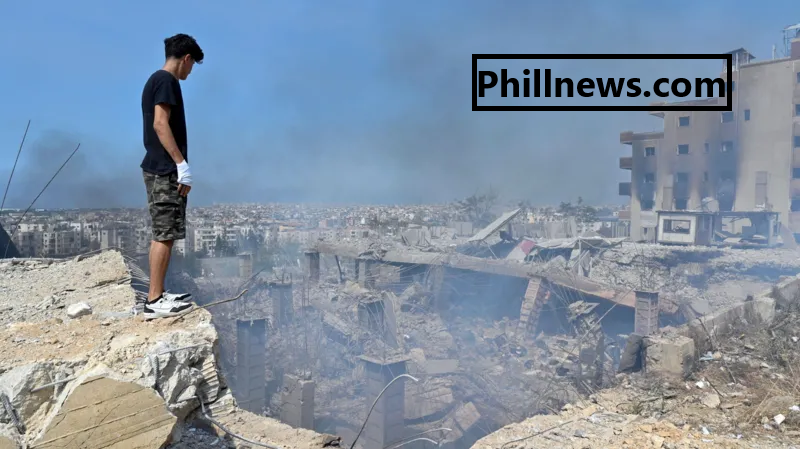
What will Israel do?
If anyone had any doubts before the assassination, they would no longer have them. Israel certainly does not intend to pause its military assault for the 21-day truce offered by 12 countries, including its closest friend, the United States.Its military believes they have Hezbollah on the back foot now, so it will want to continue its onslaught until the threat of those missiles is eliminated.Short of Hezbollah’s submission, which is doubtful, it is difficult to see how Israel can achieve its military goal of eliminating the danger of Hezbollah strikes without committing soldiers on the ground.The Israel Defense Forces have published footage of infantry training near the border for this very purpose.But Hezbollah has also spent the last 18 years, since the end of the previous war, preparing to fight the next one. Nasrallah urged his followers in his final public address before his death that an Israeli assault into south Lebanon would be “a historic opportunity”.For the IDF, entering Lebanon would be rather simple. However, like with Gaza, getting out may take months.
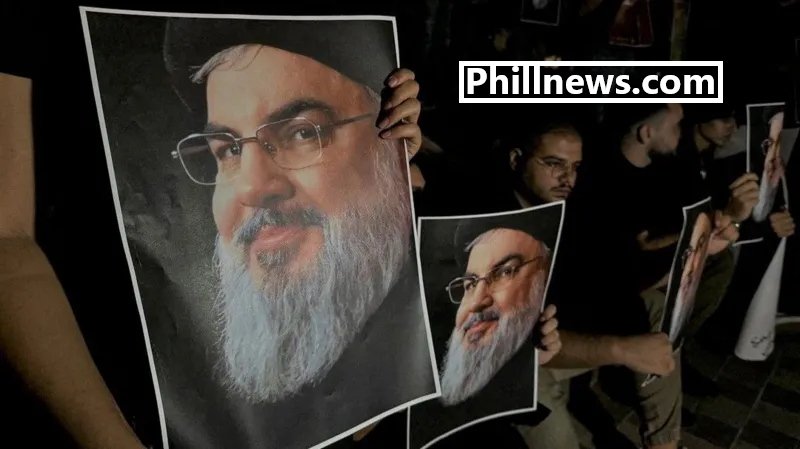
 Phill News Entertainment – Phill News
Phill News Entertainment – Phill News
